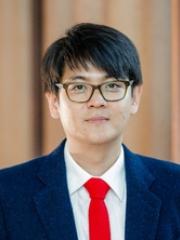Associate Professor Felix Septianto

Researcher biography
Felix is a faculty member at the University of Queensland. His research examines how businesses can harness emotional power to enhance marketing effectiveness. These insights have been published in Financial Times' Top 50 (FT50) journals and featured in media outlets including the Harvard Business Review.
He has been recognised as a Discovery Early Career Researcher Award (DECRA) Fellow by the Australian Research Council, a Paul Bourke Award winner by the Academy of the Social Sciences in Australia, an ANZMAC Emerging Marketing Researcher by the Australian and New Zealand Marketing Academy, and a UQ Foundation Research Excellence Award winner.
Felix is also a co-founder of Accurment, a behavioural decision engine that helps marketers craft research-backed strategies and earn stakeholder trust by leveraging a proprietary, expert-curated behavioural science database.
He earned his PhD from the University of New South Wales and previously served as a faculty member at the University of Auckland. He has also been Research Director at Quest Strategic, a boutique management consulting firm in Indonesia.
